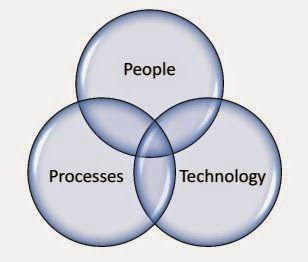Knowledge Management in the context of the RUFORUM Network (Part II)
Knowledge Management for networks varies from Knowledge Management within a single organization. Knowledge Management for a network considers dozens or more organizations that have come together for a specific purpose. Members of these networks still have their individual/institutional Knowledge Management strategies to worry about. The assumption is that all the members of the network are able to participate effectively in knowledge identification, capturing, evaluation, retrieving, generation and sharing for the benefit of the network. Members of these networks could be scattered across the globe, using different languages and having different knowledge management systems. The design features of a Knowledge Management Model for a network must include:
Knowledge Management for networks varies from Knowledge Management within a single organization. Knowledge Management for a network considers dozens or more organizations that have come together for a specific purpose. Members of these networks still have their individual/institutional Knowledge Management strategies to worry about. The assumption is that all the members of the network are able to participate effectively in knowledge identification, capturing, evaluation, retrieving, generation and sharing for the benefit of the network. Members of these networks could be scattered across the globe, using different languages and having different knowledge management systems. The design features of a Knowledge Management Model for a network must include:
- Support for the goals of that network,
- Enhancing the network structure and promoting the natural interactions
- Enhancing communication, feedback, learning, documenting and efficient sharing of knowledge in the network. This could be achieved through the use of the emerging information and communication technologies.
The RUFORUM Network can be
considered to be a combination of a decentralized and centralized network. The
RUFORUM Secretariat is at the center of the network to facilitate the agreed
core-activities of the network. Other activities occur among and between the
network members and these activities are not necessarily coordinated by the
RUFORUM Secretariat – but have been inspired through the spill-over effects of
the mainstream activities of the network.
The RUFORUM Network was formed by
African universities for the purpose of benefiting from working together. The
member universities collectively respond to challenges related to their limited
capacities. They collaborate to implement post-graduate agricultural training
programs and conduct quality, development-oriented agricultural research. The
RUFORUM Network has become a strong platform for sharing lessons learned, connecting
people, mentoring agricultural students and agricultural faculty, championing
community action research and spearheading innovations related to information
and communication technology for agricultural development.
The RUFORUM Knowledge Management
model is best defined through the RUFORUM Theory of Change. Conceptually this
model has five key knowledge nodes – the Secretariat, the RUFORUM governance
bodies, the 46 member universities, the RUFORUM National Chapters and the strategic
partners. Knowledge and information flows between and among these five key
nodes. A number of platforms are facilitated by the Secretariat to connect
people and promote learning and knowledge sharing – these include the Biennial
Conferences, Annual General Meetings, Thematic Groups Meetings staff meetings and the use of
social media and the website. Listed below is the description of the five knowledge
nodes:
- The RUFORUM Secretariat is hosted by Makerere University in Kampala Uganda and coordinates the activities of the RUFORUM Network.
- The RUFORUM Governance Bodies provide overall guidance to the network – these include the Board of Directors, International Advisory Panel (IAP) and the Technical Committee (TC).
- The 46 RUFORUM member universities in 22 countries are the key players in the network. The focus faculties are those in the agricultural and related sciences. Champions are nurtured to support the goals of the network
- RUFORUM National Chapters are a key mechanism used by the RUFORUM network to enable member universities to liaise with a wider range of key stakeholders in agriculture and thus shape a common agenda to improve post-graduate training and research. National Chapters are created in each member country to bring in participants from the universities, National Agricultural Research Systems, related government ministries, the private sectors, farmer organisations and others.
- Strategic Partners are carefully identified to support the goals and mission of RUFORUM. These include other networks of universities from USA, Europe, Africa, the Pacific and Asia; Regional Economic Communities; Continental and International Agricultural Research Consortia; international Non-Governmental Organisations; and others
De Man et al (2008) identified
four problems confronted by networks when implementing Knowledge Management:
(1) How to motivate members to share knowledge, (2) How to prevent members from
learning while not sharing, (3) How to ensure that the right knowledge is
efficiently availed to a network member and (4) How to overcome cultural, time
and knowledge gaps.
These problems are also being faced by the RUFORUM Network that I work for. It is important that all members of the RUFORUM network have the capacity to participate in knowledge identification, creation, capturing, evaluating, retrieving, and sharing.
These problems are also being faced by the RUFORUM Network that I work for. It is important that all members of the RUFORUM network have the capacity to participate in knowledge identification, creation, capturing, evaluating, retrieving, and sharing.
Part III will discuss the Emerging Knowledge Management Strategy for the RUFORUM Network.

